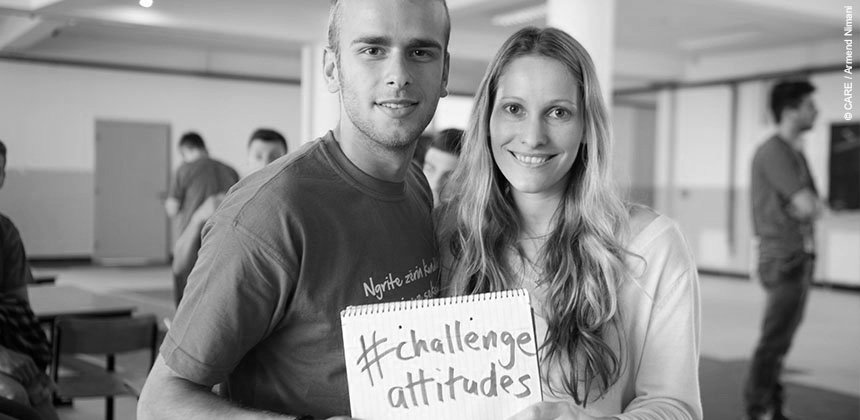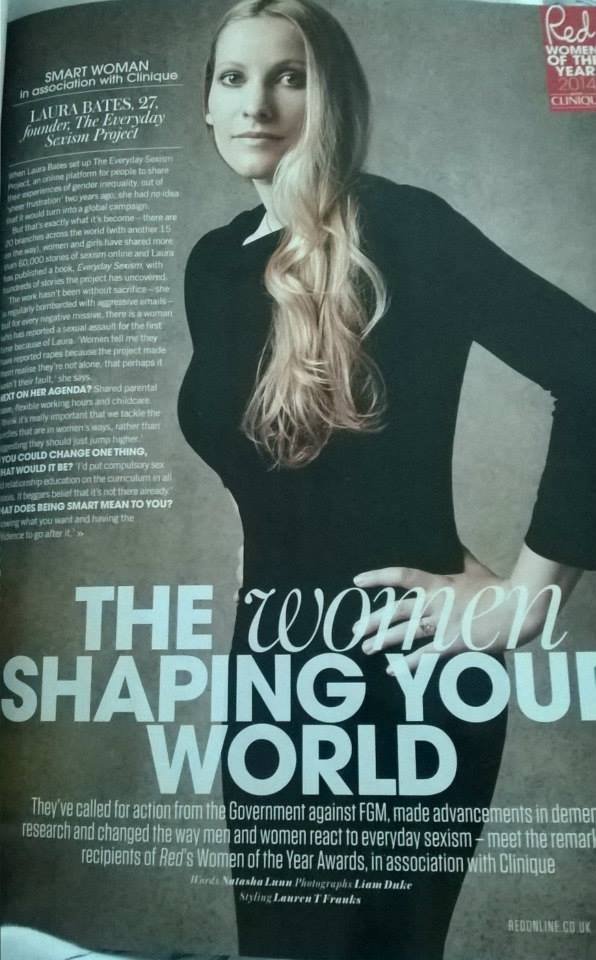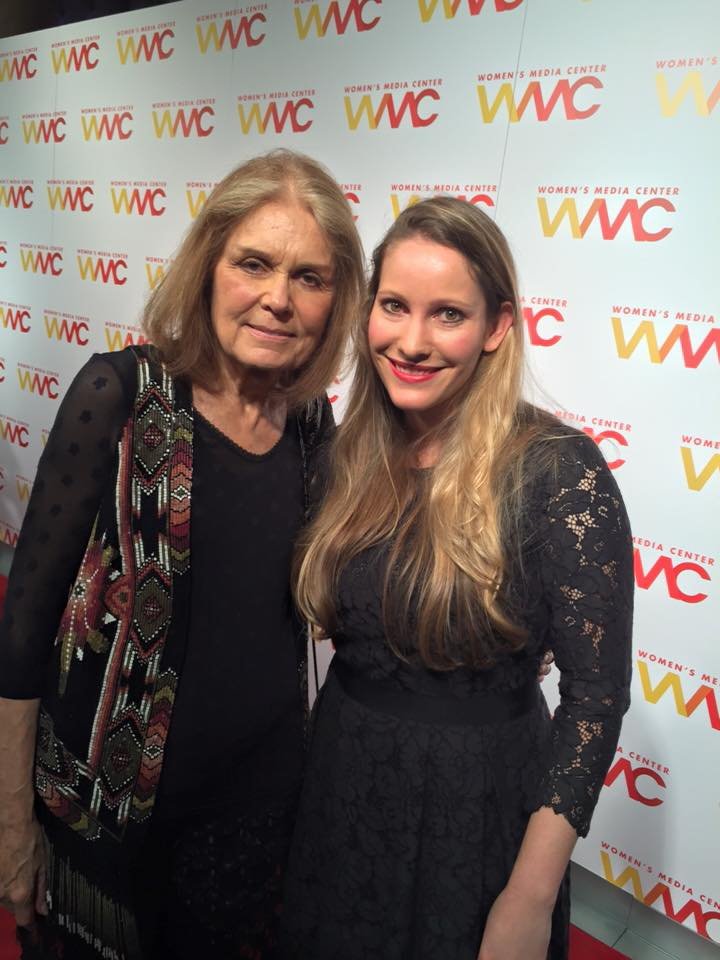
Activist
“As founder of the Everyday Sexism project, Laura was one of the first women to harness the power of social media to fight sexism and misogyny and give millions of young women a voice.”
- Grazia
“Our voices are loudest when we raise them together…”
Almost a quarter of a million people have shared their stories with the Everyday Sexism Project
The Everday Sexism Project
Laura founded the Everyday Sexism Project in 2012.
The project has amassed over 200,000 entries from people around the world, describing all forms of gender inequality, from sexism to sexual harassment, workplace discrimination to rape.
Different branches have sprung up globally, such as in Denmark, where the project has been used to lobby politicians, challenge sexist media coverage and carry out public awareness campaigns.
The term ‘everyday sexism’, which Google data shows was almost completely unused prior to the Project’s launch, has become part of mainstream conversation in countries around the world, with global media reports, politicians and businesses using the term.
The project and its testimonies have been covered by mainstream news outlets from Mexico to Japan, from the Times of India to the New York Times, French Glamour to Grazia South Africa.
The project set out to prove a continuum exists between the casual, normalised sexism of street harassment and so-called workplace ‘banter’ and the shockingly high levels of rape and sexual violence in our society. Ten years later, we are much closer as a society to recognising this, to taking sexism seriously and being prepared to talk about it.
The project initially set out to raise awareness, a goal quickly achieved by the millions of visits to the website, the almost third of a million people who follow its various social media accounts and the tens of millions reached online by its campaigns. The adoption of the phrase ‘everyday sexism’ in the mainstream cemented this. The #EverydaySexism hashtag and account have reached 34 million people on Twitter alone.
Campaigns
Individual awareness-raising campaigns have included collaborations with the charity Women 4 Refugee Women, to highlight the misogyny and sexual violence faced by refugee women, a #DoubleDiscrimination campaign that revealed the intersection of sexism with other forms of prejudice, and campaigns highlighting street harassment (#ShoutingBack), workplace sexual harassment (#StandingUp) and childhood sexual abuse (#WhenIwas), among others.
The project’s campaigns quickly moved beyond awareness raising, with a mass action alongside US activists targeting Facebook’s policies on domestic and sexual violence content. The #FBrape campaign succeeded in changing Facebook’s policies, stance and training guidelines, impacting social norms around the world.
Alongside other women’s organisations, the project campaigned fiercely over a period of several years for a complete overhaul of the relationships and sex education curriculum. Its #SREnow campaign called for sexual consent, healthy relationships, porn and LGBTQ identities to be included in lessons. After years of intense campaigning, including using the project entries from real teenagers to convince ministers and MPs of the urgency of the issue, the curriculum was finally changed. Laura was one of the experts called on by the Department for Education to help advise on the contents of the new curriculum.
Work with Schools, Businesses and Police Forces
It soon became clear that the powerful testimonies collected by the project could be taken offline and used to drive real-world change. The stories from young people have been used in schools across the country, forming the basis of discussions with tens of thousands of students about sexism, gender stereotypes and healthy relationships.
Testimonies from women in the workplace have been used to work directly with stakeholders and organisations across different professional sectors, from law to tech, highlighting the reality of discrimination and abuse faced by women in those spheres and encouraging employers to tackle it.
Working with the TUC, the Everyday Sexism Project highlighted the issue of workplace sexual harassment, with a landmark report establishing the true scale of the problem for the first time in decades. The data went on to form the foundation of countless news reports and campaigns.
Real stories submitted to the project by women and girls who had been harassed or abused on public transport were used to work directly with the British Transport Police on Project Guardian, an initiative that completely overhauled the way the force dealt with sexual offences on the transport network. The project entries were directly used to retrain over 2,000 officers as part of the initiative, which saw a dramatic increase in reporting by victims and in arrests of perpetrators.
Social and Cultural Impact
Laura’s book, Fix the System, Not the Women, inspired a major national advertising campaign, #HopeUnited, which brought England football players together to stand against sexist abuse and put the onus on men to stop it.
In 10 years, the project has sparked an international conversation on Everyday Sexism at the United Nations, worked with the Council of Europe, and seen a film about the project made for Beyonce's Twickenham Stadium 'Sound of Change' Concert, and televised to over a billion people worldwide. Laura has spoken at venues from the Sydney Opera House to Wembley Stadium, and was invited to participate in President Obama’s White House Summit on the United State of Women. Her TED talks about the project have been viewed 1.5 million times.
Laura frequently contributes to political and current affairs programmes to advocate against sexual violence and raise awareness of gender inequality.
Charity and NGO Partnerships
Laura is Patron of Somerset and Avon Rape and Sexual Abuse Support (SARSAS), part of the Rape Crisis network. She is Contributor at Women Under Siege, a New York-based organisation combatting the use of sexual violence as a weapon of war. She is on the Board of Directors for Promundo, an NGO which is a global leader in engaging men and boys to advance gender equality and prevent violence against women.
Recognition
Laura’s work has seen her awarded a British Empire Medal in the Queen’s birthday honours list and named a Woman of the Year by Cosmopolitan, Red Magazine and The Sunday Times Magazine. She has been named on the Woman's Hour Power List and was one of the inaugural BBC 100 Women. She is the recipient of two honorary degrees, an honorary fellow of St John’s College, Cambridge, and was awarded the Internet and Society Award by the Oxford Internet Institute alongside Sir Tim Berners Lee. In the US, she has received the Women's Media Award from the Women's Media Center, and been named one of CNN's 10 'Visionary Women'.
Selected media coverage
-

Rape threats, groping and perverts - Everyday Sexism: why Laura Bates is shouting back
THE TELEGRAPH
-

The day the Everyday Sexism Project won - and Facebook changed its image
INDEPENDENT
-

What I have learned from five years of Everyday Sexism.
THE GUARDIAN
-

Lucy Kellaway interviews Everyday Sexism Project founder Laura Bates
FINANCIAL TIMES





